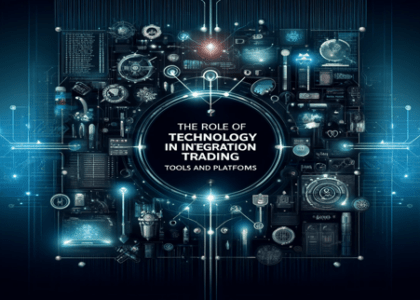Integration trading, the practice of combining and managing multiple trading systems and data sources, operates in a highly regulated environment. Understanding and adhering to regulatory requirements is crucial for maintaining compliance and avoiding penalties. This blog post explores the regulatory considerations, compliance requirements, and oversight mechanisms relevant to integration trading. We’ll delve into the roles of regulatory bodies, the frameworks governing trading practices, and emerging trends impacting the industry.
The Importance of Regulatory Compliance in Integration Trading
Regulatory compliance in integration trading ensures the integrity and stability of financial markets. It protects investors, maintains fair trading practices, and promotes transparency. Compliance with regulations is not just a legal obligation but a fundamental aspect of maintaining trust and credibility in the financial markets.
Key Regulatory Bodies Overseeing Integration Trading
Securities and Exchange Commission (SEC)
The SEC is the primary regulatory body overseeing securities markets in the United States. It enforces rules that govern trading practices, market conduct, and information dissemination. Integration trading platforms must comply with SEC regulations to operate legally within the U.S.
Commodity Futures Trading Commission (CFTC)
The CFTC regulates the U.S. derivatives markets, including futures, swaps, and options. Integration trading involving these instruments must adhere to CFTC regulations to ensure market integrity and protect against fraud and manipulation.
Financial Conduct Authority (FCA)
In the United Kingdom, the FCA oversees the conduct of financial firms and markets. It ensures that integration trading activities comply with rules designed to protect consumers, enhance market integrity, and promote competition.
European Securities and Markets Authority (ESMA)
ESMA is an independent EU authority that contributes to safeguarding the stability of the European Union’s financial system. It ensures the integrity, transparency, efficiency, and orderly functioning of securities markets and enhances investor protection.
Regulatory Framework Governing Integration Trading
Market Conduct and Trading Practices
Regulations governing market conduct and trading practices are designed to prevent market abuse, such as insider trading and market manipulation. Integration trading platforms must implement robust surveillance systems to detect and report suspicious activities.
Data Privacy and Security
Data privacy and security have become paramount with the increasing reliance on data in integration trading. Regulations like the EU’s General Data Protection Regulation (GDPR) mandate strict data protection measures. Compliance ensures data is collected, stored, and processed securely and transparently.
Financial Reporting and Disclosure
Regulations require firms to provide accurate and timely financial reporting and disclosure. This transparency helps maintain market confidence and allows regulators to monitor market conditions effectively. Integration trading platforms must ensure that their reporting mechanisms meet regulatory standards.
Emerging Regulatory Trends in Integration Trading
Adoption of New Technologies
Integrating advanced technologies such as artificial intelligence, machine learning, and blockchain transforms integration trading. Regulators are increasingly focusing on how these technologies are used and their impact on market integrity and investor protection. Firms must stay abreast of regulatory guidelines related to technological adoption.
Globalization of Financial Markets
The globalization of financial markets has led to increased cross-border trading activities. Regulators are collaborating internationally to harmonize regulations and ensure consistent oversight. Integration trading platforms operating globally must navigate a complex web of international regulations.
Environmental, Social, and Governance (ESG) Considerations
There is a growing emphasis on ESG factors in investment decisions. Regulators are developing guidelines to ensure integration trading platforms incorporate ESG considerations into their practices. Compliance with these emerging standards is becoming a critical aspect of regulatory oversight.
Best Practices for Regulatory Compliance in Integration Trading
- Implement Comprehensive Compliance Programs: Develop and maintain robust compliance programs that address all relevant regulatory requirements.
- Regularly Monitor Regulatory Changes: Stay updated on regulatory changes and emerging trends to ensure ongoing compliance.
- Invest in Advanced Compliance Technology: Utilize advanced technology solutions to enhance compliance monitoring, reporting, and data security.
- Conduct Regular Audits and Assessments: Regularly audit trading practices and systems to identify and address compliance gaps.
- Enhance Training and Awareness: Ensure that all employees are well-trained and aware of regulatory requirements and compliance best practices.
Conclusion
Navigating the regulatory landscape of integration trading is complex but essential for maintaining market integrity and investor trust. By understanding the roles of regulatory bodies, adhering to the regulatory framework, and staying informed about emerging trends, integration trading platforms can ensure compliance and mitigate risks. Emphasizing robust compliance programs and adopting best practices will enable traders to operate confidently in the ever-evolving financial markets.






